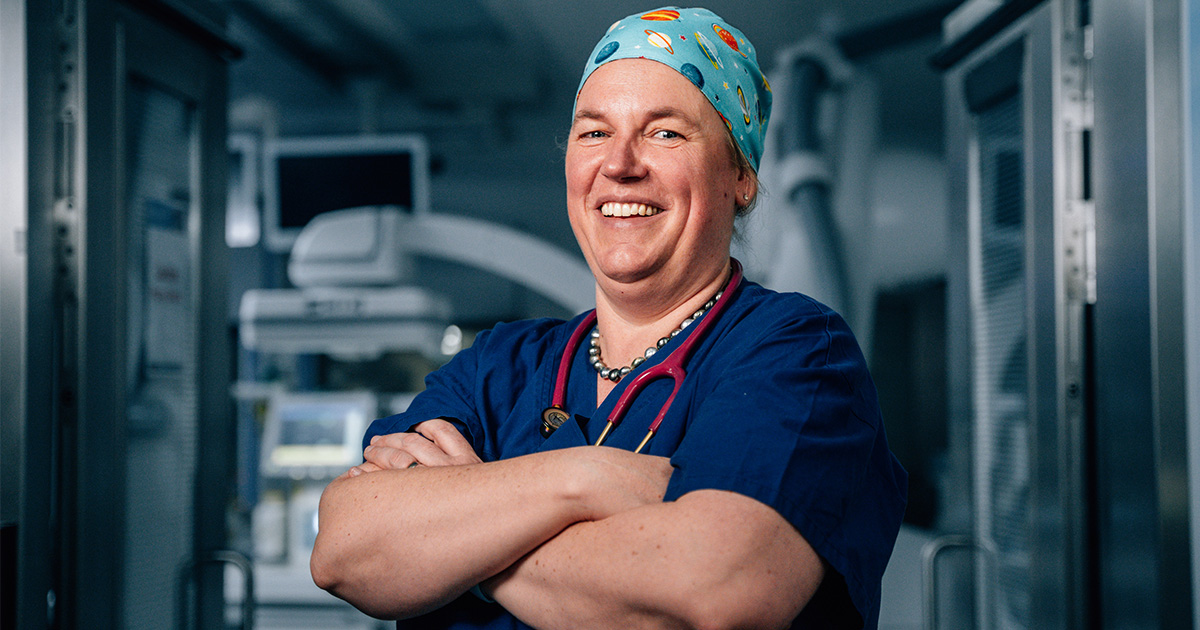Search
Research
3-Dimensional Virtual Reality Versus 2-Dimensional Video for Distraction during the Induction of Anesthesia in Children to Reduce Anxiety: A Randomized Controlled TrialPreoperative anxiety is common in children. It can contribute to negative experiences with anesthetic induction and may cause adverse physiological and psychological effects. Virtual reality (VR) and electronic tablet devices are 2 audiovisual distraction tools that may help to reduce anxiety and enhance the preoperative experience. This study aimed to compare the use of an immersive 3-dimensional (3D) VR to 2-dimensional (2D) video on anxiety in children during induction of general anesthesia.
Research
Difficult or impossible facemask ventilation in children with difficult tracheal intubation: a retrospective analysis of the PeDI registryDifficult facemask ventilation is perilous in children whose tracheas are difficult to intubate. We hypothesised that certain physical characteristics and anaesthetic factors are associated with difficult mask ventilation in paediatric patients who also had difficult tracheal intubation.
Research
Airway management in neonates and infants: European Society of Anaesthesiology and Intensive Care and British Journal of Anaesthesia joint guidelinesAirway management is required during general anaesthesia and is essential for life-threatening conditions such as cardiopulmonary resuscitation. Evidence from recent trials indicates a high incidence of critical events during airway management, especially in neonates or infants. It is important to define the optimal techniques and strategies for airway management in these groups.

News & Events
Prime Minister’s Prize for pioneering WA anaesthetistCongratulations to trailblazing Western Australian paediatric anaesthetist and researcher Professor Britta Regli-von Ungern-Sternberg, who has been awarded a prestigious Prime Minister’s Prize for Science for globally influential research that has made surgery and recovery safer for babies and children.
Research
Preoperative preparation of children with upper respiratory tract infection: a focussed narrative reviewThis review summarises the current evidence for the perioperative preparation in children with upper respiratory tract infections (URTI), including COVID-19 infection. URTI, including COVID-19 infection, are common and frequent in children who present for elective surgery. Children with URTI are at increased risk of perioperative respiratory adverse events.
Research
Behavioural and neuropsychological outcomes in children exposed in utero to maternal labour epidural analgesiaRecent studies report conflicting results regarding the relationship between labour epidural analgesia (LEA) in mothers and neurodevelopmental disorders in their offspring. We evaluated behavioural and neuropsychological test scores in children of mothers who used LEA.
Research
Airway management in the paediatric difficult intubation registry: a propensity score matched analysis of outcomes over timeThe Paediatric Difficult Intubation Collaborative identified multiple attempts and persistence with direct laryngoscopy as risk factors for complications in children with difficult tracheal intubations and subsequently engaged in initiatives to reduce repeated attempts and persistence with direct laryngoscopy in children. We hypothesised these efforts would lead to fewer attempts, fewer direct laryngoscopy attempts and decrease complications.
Research
The effect of the COVID-19 pandemic on paediatric anaesthesia research as evidenced by the contrasting recruitment experiences of centres in Australia and ScotlandBritta Regli-von Ungern-Sternberg AM FAHMS MD, PhD, DEAA, FANZA Chair of Paediatric anaesthesia, University of Western Australia; Consultant
Research
Isoelectric Electroencephalography in Infants and Toddlers during Anesthesia for Surgery: An International Observational StudyIntraoperative isoelectric electroencephalography (EEG) has been associated with hypotension and postoperative delirium in adults. This international prospective observational study sought to determine the prevalence of isoelectric EEG in young children during anesthesia.
Research
Impact of airway and a standardized recruitment maneuver on CT chest imaging quality in a pediatric population: A retrospective reviewWhen performing computerized tomography chest imaging in children, obtaining high quality, motion-free images is important in the accurate diagnosis of underlying pathology. General anesthesia is associated with the development of atelectasis, which can impair accurate diagnosis by obscuring or altering the appearance of the lung parenchyma or airways.
